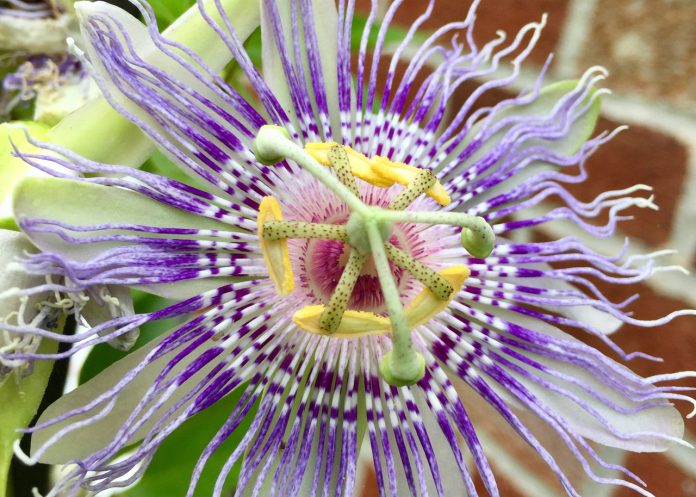By Maria Noël Groves, RH(AHG)
Quality, regular sleep forms the foundation of our health and wellbeing, but what do you do if you’re trying to prioritize bedtime yet can’t get quality sleep? At least one third of Americans don’t get enough sleep – double that if you’re pregnant, postpartum, the parent of a young child or are going through perimenopause or surgical menopause. So many things can disrupt our sleep including blood sugar roller coasters, reproductive hormone fluctuations, stress, and sleep apnea. Many of these situations trigger a surge of cortisol or other stress hormone that wakes us up.
While it’s always a good idea to talk with your healthcare practitioner to rule out or identify and address underlying health concerns, for day-to-day sleeplessness, herbs may be supportive. In my new book Herbal Remedies for Sleep (Storey Publishing, April 2024) we explore the basics, nuance, 18 herbs, and 22 herbal remedies for sleep. In today’s blog, I’ll highlight some of the key herbal actions and favorite herbs and how they may help nudge your sleep-wake cycles into better balance.
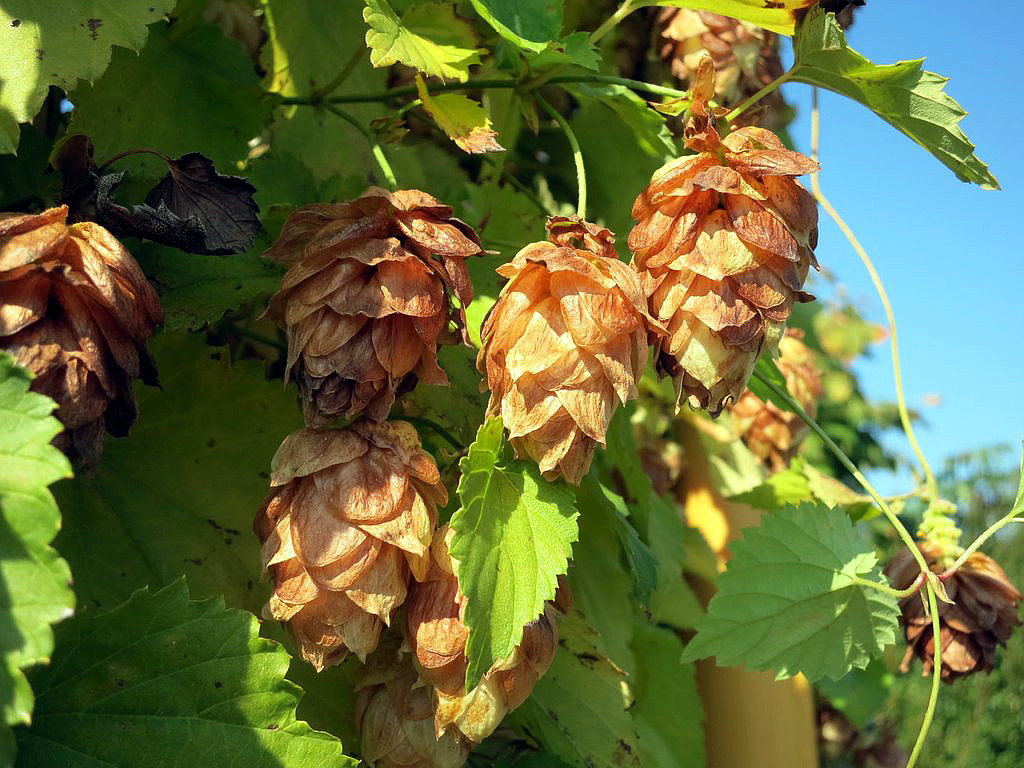 Sedatives
Sedatives
Moderate to strong herbal relaxants form the backbone of almost every natural sleep remedy on the market. Herbs like valerian, hops, and passionflower help to relax the central nervous system to help you wind down, feel tired, fall asleep, and sleep more deeply. Each herb has its affinities for different people…Stinky valerian root for folks who run cold, anxious, with muscular tension. Bitter and phytoestrogenic IPA-like hops for people who run hot or are going through perimenopause. Mild-tasting passionflower, which works well for most people particularly if you’re anxious, agitated, or suffering from excessive brain chatter.
However, sedatives don’t work well for everyone. They may interact with mood and other sedating (such as pain and neural) medications, increasing sedation. They can exacerbate untreated or unidentified sleep apnea as well as some types of sleep disorders. Some people may find that taking certain sedating herbs regularly aggravates sluggishness and depression.
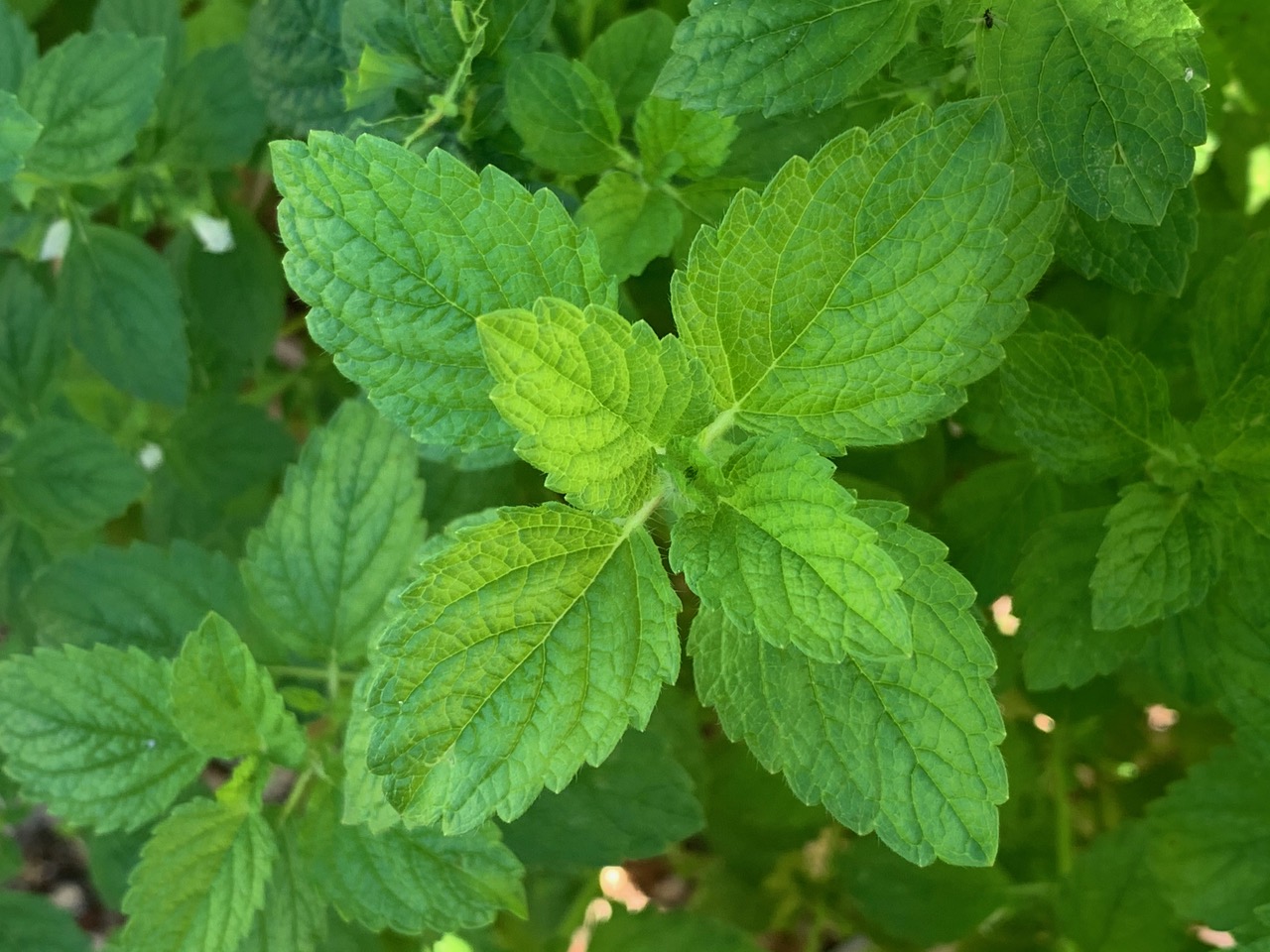 Nervines
Nervines
Gentler restorative nervines nourish the nervous system. They often have a mild calming effect without over sedation that can help with both daytime stress and anxiety and nighttime sleep. Taken in the evening or before bedtime, even though they’re gentler than sedatives, they may still provide meaningful support for sleep. They’re also less apt to aggravate depression, herb-drug interactions, and apnea compared to sedative herbs. I think of them as the unsung heroes for sleep. Some of them are fast acting – such as lemon balm, tulsi, or motherwort. Others like milky oat seed are slow to build. All have increased benefits with regular use.
Adaptogens
Adaptogens have become trendy for energy and vitality. They tend to be somewhat stimulating in nature but in a more restorative way than overt stimulants like caffeine. When it comes to sleep, sometimes they can be helpful, typically preferred in the morning or earlier in the day. 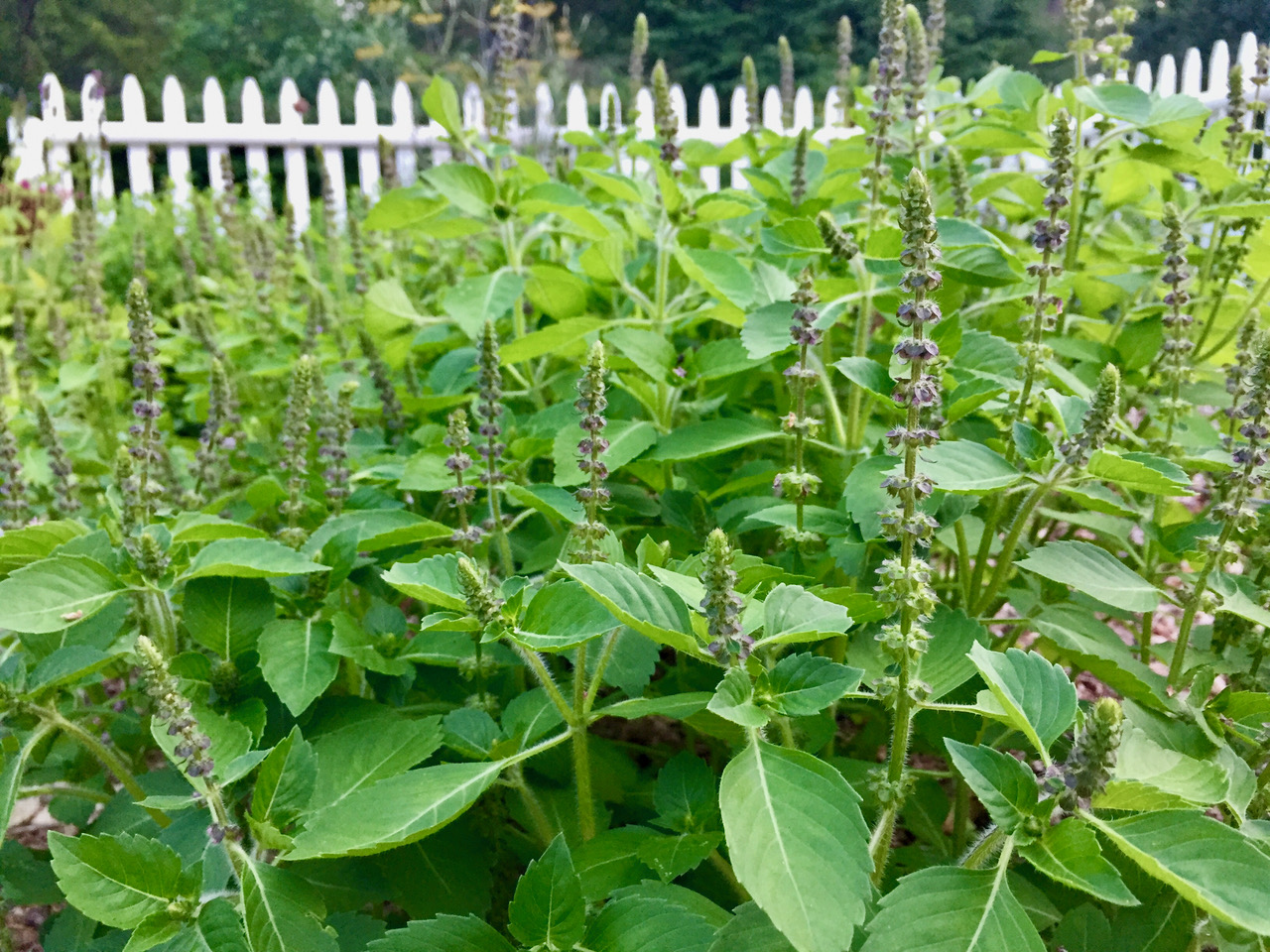 It depends widely on the herb and the individual. You might consider taking an adaptogen for daytime energy and stress response, which might set you up with better patterns to be able to relax at night. That said, some people find adaptogens to be too energizing and disruptive for sleep. Popular mid-range adaptogens that most (but not all) people tolerate include ashwagandha, reishi, and schizandra, all of which have traditional use for supporting sleep as well as energy. Subtler still is tulsi, or holy basil, which bridges the nervine-adaptogen divide nicely for most people. Another adaptogen-nervine-like herb to consider is magnolia bark, which seems particularly helpful to lower spikes of the stress hormone cortisol, support overall calm, and reduce nighttime waking.
It depends widely on the herb and the individual. You might consider taking an adaptogen for daytime energy and stress response, which might set you up with better patterns to be able to relax at night. That said, some people find adaptogens to be too energizing and disruptive for sleep. Popular mid-range adaptogens that most (but not all) people tolerate include ashwagandha, reishi, and schizandra, all of which have traditional use for supporting sleep as well as energy. Subtler still is tulsi, or holy basil, which bridges the nervine-adaptogen divide nicely for most people. Another adaptogen-nervine-like herb to consider is magnolia bark, which seems particularly helpful to lower spikes of the stress hormone cortisol, support overall calm, and reduce nighttime waking.
These are just a few of the concepts we’ll cover in our upcoming webinar on Herbal Remedies for Sleep, all of which are covered in much greater depth with extensive plant profiles and fun recipes in my new book. You can learn more about the book and order it at wintergreenbotanicals.com/book.
Join Maria on Tuesday, March 12 at 1pm Eastern for the webinar: Herbal Remedies for Sleep. Our webinars are free to The Herb Society of America members and $7.50 for guests. Become a member today, and enjoy all of our webinars for free along with access to the webinar library with over fifty program titles. To register, visit https://www.herbsociety.org/hsa-learn/herb-education/hsa-webinars/
Medicinal Disclaimer: It is the policy of The Herb Society of America, Inc. not to advise or recommend herbs for medicinal or health use. This information is intended for educational purposes only and should not be considered as a recommendation or an endorsement of any particular medical or health treatment. Please consult a healthcare provider before pursuing any herbal treatments.
Photo Credits: 1) Passionflower (courtesy of the author); 2) Hops (Chrissy Moore); 3) Lemon balm (courtesy of the author); 4) Tulsi/holy basil (courtesy of the author); 5) Maria Noël Groves (Kristin Smith Alachkar)
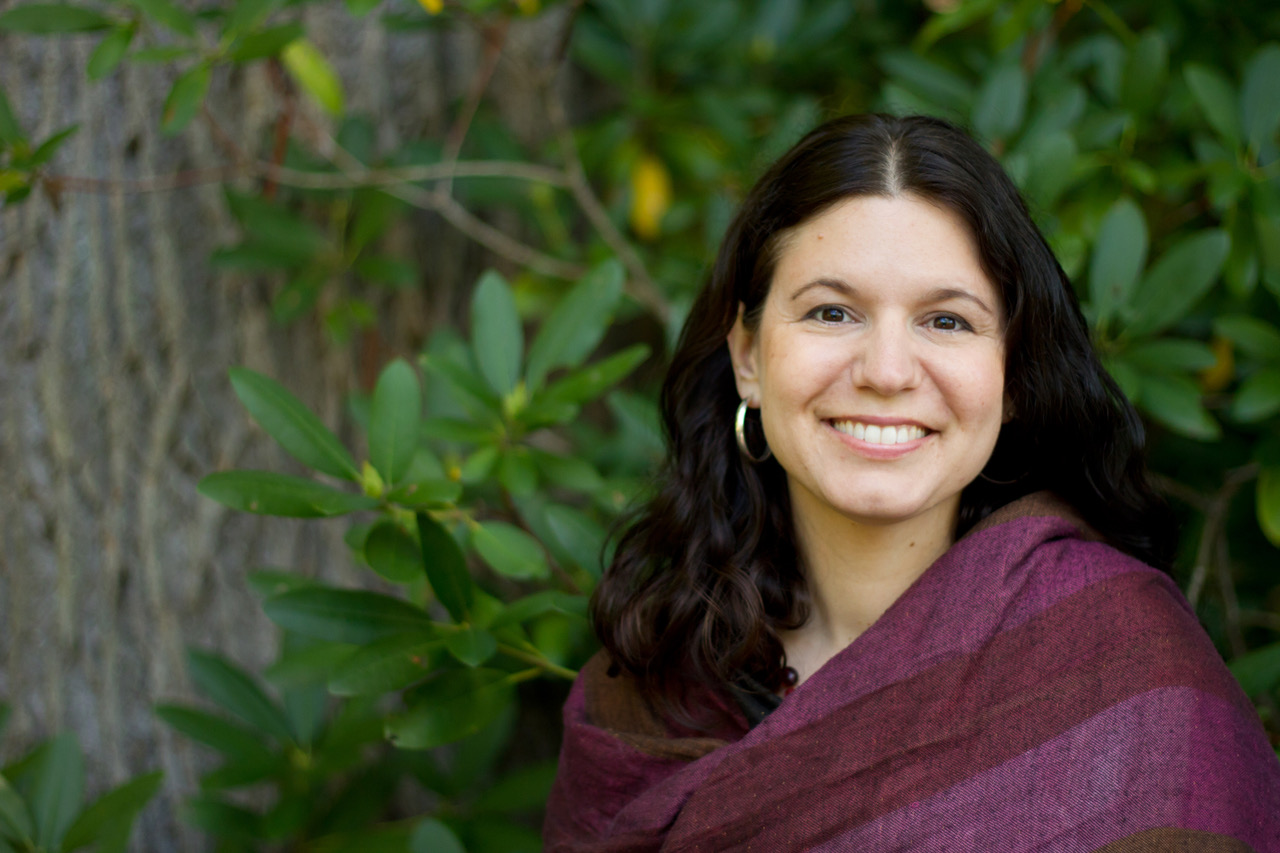 Maria Noël Groves, RH (AHG), clinical herbalist, runs Wintergreen Botanicals, nestled in the pine forests of New Hampshire. Her business is devoted to education and empowerment via classes, health consultations, and writing with the foundational belief that good health grows in nature. She is the author of the award-winning, best-selling Body into Balance: An Herbal Guide to Holistic Self Care, Grow Your Own Herbal Remedies, and the new Herbal Remedies for Sleep. Learn more about Maria, classes, and her books on herbs at WintergreenBotanicals.com.
Maria Noël Groves, RH (AHG), clinical herbalist, runs Wintergreen Botanicals, nestled in the pine forests of New Hampshire. Her business is devoted to education and empowerment via classes, health consultations, and writing with the foundational belief that good health grows in nature. She is the author of the award-winning, best-selling Body into Balance: An Herbal Guide to Holistic Self Care, Grow Your Own Herbal Remedies, and the new Herbal Remedies for Sleep. Learn more about Maria, classes, and her books on herbs at WintergreenBotanicals.com.

